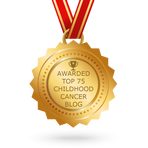|
www.mychamplainvalley.com/news/uvm-research-on-leukemia-could-change-treatment-options-for-high-risk-patients/706919423
Burlington, Vt. - Research on Leukemia at the University of Vermont could change treatment options for patients. Dr. Jessica Heath says the hardest part of her job is telling a parent their child has cancer. "You know that that whole family's life is going to change like that," she said. Health works at the Children's Specialty Clinic at the University of Vermont Medical Center in pediatric oncology. She says the clinic sees about 30 new cases of childhood cancer each year. "Their life story becomes what happened before cancer and what happened after cancer," she said. Dr. Heath has some patients with Leukemia, a blood cancer. Chemotherapy treatment for these children could take months, depending on the patient. Research being done just a few buildings away could soon help kids who are fighting Leukemia. Heath is working with UVM professor Seth Frietze on research to identify different types of proteins in Acute Lymophoblastic Leukemia, also known as ALL. It's a higher risk form of the disease. They're partnering up with researchers from the University of Minnesota to do the work. "Even something like Leukemia, there's many different types and even every patient is different from on to the next," Frietze, an Assistant Professor at the University of Vermont, said. Frietze considers himself a 'gene jock,' looking deep into the cancer cell's DNA. "You look at them under a microscope and they look the same," Frietze said. Frietze helped to find one key protein, the 'needle in the hay stack,' as he put it. The protein, STAT5, causes competition between other proteins, driving the cancer. "If we have a lot of that one protein and none of this other protein, it leads to a bad prognosis and a bad outcome," Frietze said. The key difference in the DNA's protein sequence. "Those differences are very relevant for our treatment options," he said. In the future, this means doctors, like Jessica Health, will be able to create more specific treatment plans for high risk Leukemia patients, cutting down on long term or permanent side effects. "We know that 50 to 60 percent of children who are treated for Leukemia will suffer long term or even permanent side effects from their treatment," Heath said. "These include things like developmental delay, toxicity to the heart, to the kidney." Researchers are still a long way from this study making its way to clinics. "Ultimately this research will lead to something that will impact patients," Freitze said. "Children are so resilient and so tough, which you might not imagine looking at this tiny little two or three year old," Heath said. The research is a ray of hope for the littlest ones putting up a big fight.
1 Comment
|
AuthorBerni & Murcer, Friends for LifeTM Archives
September 2019
Categories |
 RSS Feed
RSS Feed
